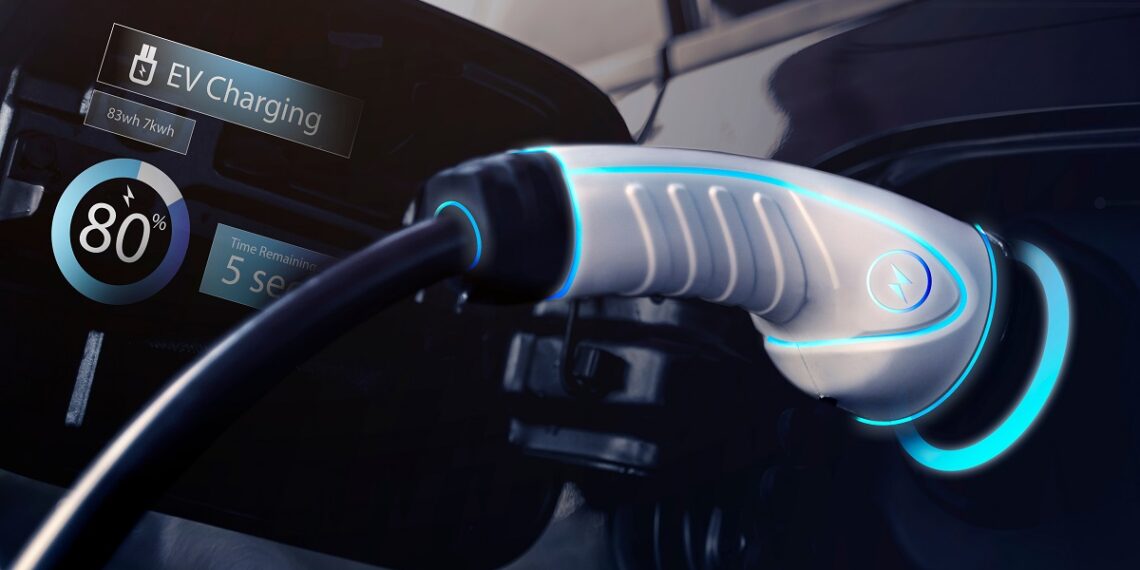The US transportation sector is the most significant domestic producer of greenhouse gases, with approximately half of its emissions coming from light-duty vehicles. To avoid the potentially devastating effects of a 1.5°C increase in global temperatures, an urgent need to replace more than 300M internal combustion engine vehicles with electric vehicles (EVs) is required.
Currently, there are more than 2M EVs on US roads, a number which some say must increase to 44M by 2030 to achieve its net-zero emission goals. Each of these vehicles requires an electric battery, produced through an intricate process involving mining, refining, production, and assembly.
Predictions regarding the expected growth in EV demand vary, yet there is agreement that it is indeed rising and will continue to do so.
S&P Global released a report estimating that EV sales in the United States alone could account for 40% of total passenger car sales by 2030 with even more optimistic findings suggesting that sales could surpass 50% by the same date.
The pressing demand for net-zero means governments, policymakers, and private and public sectors around the world need to implement policies and processes to support supply chain growth.
Recently, the US enacted the Inflation Reduction Act (IRA), which has resulted in over US$40B worth of new investment announcements in battery supply chains, demonstrating the potential for the industry to catalyse economic development locally.
Stellantis (NYSE: STLA) and LG Energy Solution
The IRA has also encouraged provincial and state governments to support investments into battery supply chains. For instance, Stellantis and LG Energy Solution recently announced that their EV battery plant in Windsor, Ontario, will resume having made “binding” financing deals with the federal and provincial governments of Canada and Ontario.
The two companies suspended construction on their NextStar Energy plant earlier this year as they sought to attain more government funding to match US proposals under the IRA.
However, they have announced their intention to resume building the plant immediately upon increased investment from the provincial government.
Mark Stewart, Stellantis’s chief operating officer in North America, commented, “We are pleased that the federal government, with the support of the provincial government, came back and met their commitment of levelling the playing field with the IRA.”
Wednesday’s deal essentially “mirrors” the benefits Stellantis and LG would have received under the IRA if their battery plant had been set up in the US, stated Ontario Economic Development Minister Vic Fedeli in an interview.
“We’ve heard that Stellantis expects, if they were in the US, over the course of time, they would receive US$15B in tax breaks, so that would be expected in Canada.”
In March, Volkswagen secured a production subsidy deal worth up to US$13B from the Canadian government for battery manufacturing at a proposed plant in St. Thomas, Ontario. Similarly, Stellantis and LG Energy sought a comparable agreement to support their Windsor plant.
Albemarle (NYSE: ALB)
To ramp up battery production in the US, mega-company Albemarle recently announced that it has selected Chester County, South Carolina as the site for its upcoming US$1.3B lithium processing plant.
The company hopes that the facility will bolster its well-established position as a prominent player in America’s burgeoning EV industry. The plant, which was initially unveiled in 2020 without a precise location, will strengthen Albemarle’s lithium processing capabilities and ultimately serve to provide more local supplies of this critical battery material to important customers such as Tesla Inc.
Being the largest lithium producer worldwide, with significant operations in Australia, Chile, and China, Albemarle has taken significant steps to expand rapidly in the US, which it views as a crucial growth sector due to the tax credits and incentives presented by the IRA.
Tesla (NASDAQ: TSLA)
In a bid to increase production of a newer, larger battery cell type and establish a unique factory for generating its semi-truck, Tesla, the most significant global producer of EVs, plans to expand its Nevada assembly plant with a substantial new investment.
Elon Musk’s Austin-based firm stated in a recent blog post that it intends to spend US$3.5B on setting up a factory that will solely focus on producing 4680 lithium-ion cells, in addition to a dedicated facility for manufacturing the recently added Tesla Semi.
According to the EV manufacturer, the new-generation battery cells, approximately the size of a beer can, will be more energy-dense and economical than their current 2170 cells. This is an essential factor to support hefty new models like the electric big rig and bulky Cybertruck pickup that may launch later this year.
Tesla currently already controls the most significant battery production operations in the US with its Gigafactory in Sparks, Nevada.
The move follows announcements from competitors, including General Motors, Ford, Hyundai, Toyota, Volkswagen, and other automakers, who are likewise pouring billions of dollars into new domestic battery and materials plants. They are taking advantage of the incentives provided by the Biden Administration aimed at transforming the US into a clean vehicle tech powerhouse.
Ford Motor Co. (NYSE: F)
Similarly, Ford Motor announced its plans to construct an EV battery factory in Marshall, Michigan worth US$3.5B.
This comes as part of Ford’s total US$17.6B in investments in EV and battery production in the US since 2019, as part of the company’s commitment to invest over US$50B in EVs globally through 2026.
“We are committed to leading the EV revolution in America, and that means investing in the technology and jobs that will keep us on the cutting edge of this global transformation in our industry,” said Ford executive chair, Bill Ford.
“I am also proud that we chose our home state of Michigan for this critical battery production hub.”
The auto manufacturer will own 100% of the plant and utilize technology and services provided by Contemporary Amperex Technology Limited (CATL) to manufacture battery cells. CATL is globally renowned as the largest producer of batteries for EVs, owning 13 factories in Europe and Asia, but none so far in the US.












